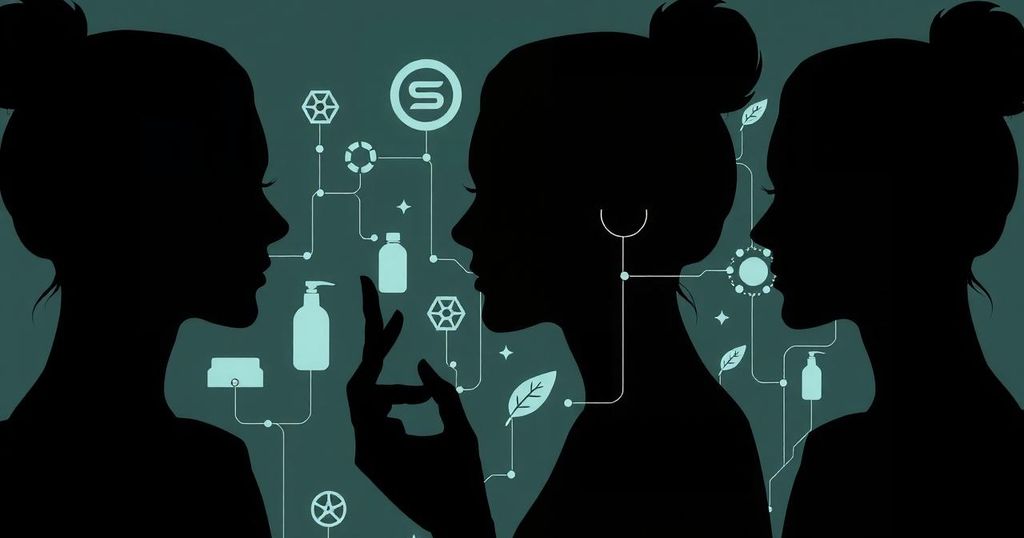Mumbai: As the beauty industry shifts towards personalized offerings, L’Oréal, a leading global cosmetics company with an annual revenue surpassing $40 billion, acknowledges the pivotal role of strategic marketing. Ranking as the fourth-largest advertiser globally, L’Oréal dedicates approximately 32% of its net sales to marketing and promotional endeavors, as articulated by Asmita Dubey, the company’s global Chief Digital and Marketing Officer. In a recent interview with Mint, Ms. Dubey provided insights into the transforming beauty marketing landscape, discussing L’Oréal’s extensive influencer initiatives, the integration of artificial intelligence (AI) in product development and consumer engagement, and the brand’s efforts to remain culturally relevant across more than 150 markets. Sustainability and digital transformation lie at the core of L’Oréal’s mission to enhance beauty accessibility, inclusivity, and personalization. L’Oréal engages an extensive network of influencers to connect with diverse consumer demographics. Speaking on the evolution of this strategy to captivate younger audiences such as Generation Z, Ms. Dubey emphasized the importance of authenticity for this demographic, who highly value peer reviews and recommendations. The company collaborates with over 60,000 influencers globally and encourages them to uniquely express beauty while aligning with L’Oréal’s brand principles. This strategy resulted in a significant 28-29% influence share within the beauty sector, showcasing its effectiveness. Furthermore, Ms. Dubey noted that the messaging within beauty marketing has undergone substantial changes, reflecting cultural nuances and evolving consumer expectations. The brand has transitioned from traditional 30-second television advertisements towards a digital-first model, empowering consumers to engage directly with the products and brand values, which remain steadfast, such as Maybelline’s representation of New York’s confidence and L’Oréal Paris’s commitment to women’s empowerment. In addressing the company’s adaptability to local markets, Ms. Dubey explained that L’Oréal tailors its global brands to respect local cultures while retaining a universal allure. This responsiveness is exemplified during significant festivals like Diwali in India and Ramadan in Dubai, where cultural ambassadors help localize messaging while respecting overarching brand values. This strategy, combined with a nuanced understanding of local cultures, enhances the relatability of L’Oréal’s global brands in diverse markets. While targeting Gen Z, L’Oréal is equally focused on reaching older demographics. By 2030, it anticipates welcoming an additional 600 million consumers, including 200 million boomers. Implicit in this approach is the utilization of AI-driven media and performance marketing, which efficiently engages both younger and older audiences across 37 global brands. L’Oréal’s commitment to sustainability is embedded within its strategic framework. The “L’Oréal for the Future” program emphasizes environmental and social responsibility, with ambitious goals such as achieving 100% renewable energy utilization across operations. Notably, L’Oréal India achieved this milestone ahead of its 2025 target, with brands like Garnier leading green initiatives such as waterless shampoos and refillable products. Furthermore, L’Oréal is implementing measures to decrease CO2 emissions associated with its digital advertising campaigns. Artificial intelligence is transforming both marketing and product development at L’Oréal. AI technologies are employed to optimize consumer engagement and content creation. An example of this progress is the new AI-powered application, “Beauty Genius,” which offers personalized beauty advice and product recommendations. In product development, AI assists in creating formulations tailored to varying skin and hair types by analyzing extensive global data, enhancing the personalized experience for consumers through virtual try-ons and skin analysis tools. In addressing trends such as the rise of direct-to-consumer brands and the growing popularity of Ayurvedic beauty products, L’Oréal remains vigilant and responsive. While recognizing the merits of natural and Ayurvedic approaches, the corporation continues to prioritize research and innovation through green sciences. Market-specific insights guide the introduction of products like CeraVe in India, combining advanced scientific formulations with local relevance. Lastly, Ms. Dubey elaborated on the importance of balancing short-term performance with long-term brand development. Maintaining clarity of objectives for both realms is crucial for sustained success. Modern marketers must intertwine data-driven insights with creativity, as demonstrated by L’Oréal’s practice of utilizing feedback from 15,000 campaigns to enhance strategies while upholding brand equity. In conclusion, L’Oréal’s strategic embrace of personalization, sustainability, and the integration of AI heralds a dynamic future for the beauty industry, wherein consumer engagement is optimized, and brand inclusivity is paramount.
Original Source: www.livemint.com

Leave a Reply